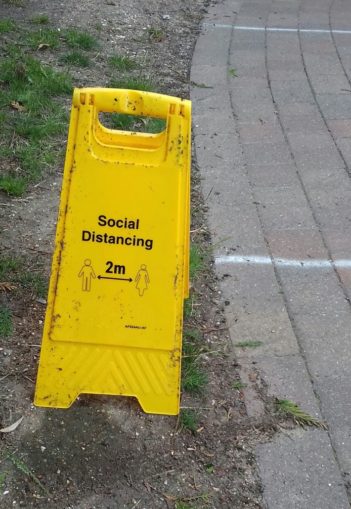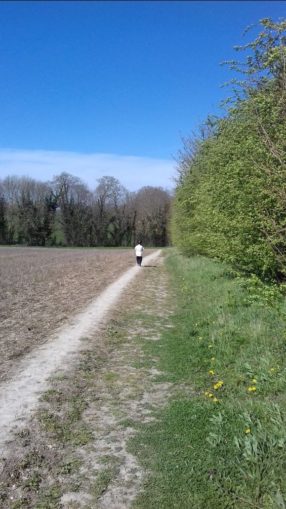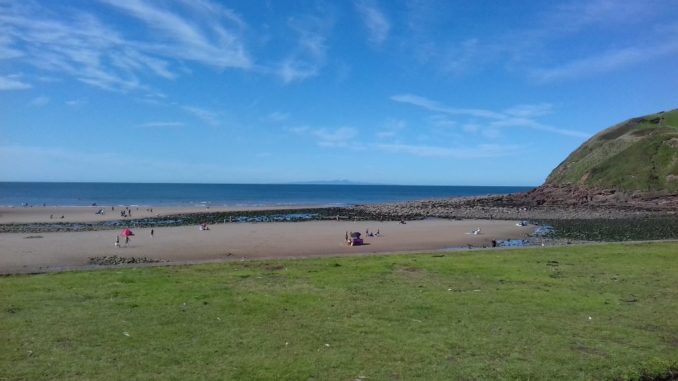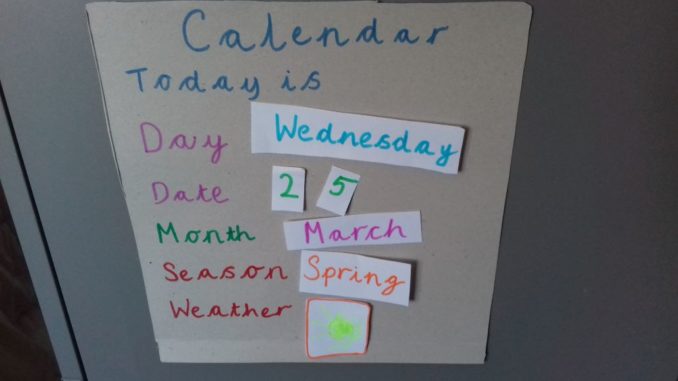Have you had a Good Pandemic?
Well, dear Puffins, after six months of unemployment and six months before that having not much to do at work, I am soon going to start a new job which is probably going to mean a bit less shitposting and a bit less time not reading the comments. Before then I thought I would have a go at writing a wee article for G-P.
There have already been zillions of articles about the coronavirus pandemic, and there will no doubt be many more. This is my modest contribution to the growing pile of online COVID wastepaper.

There is so much ground to cover with coronavirus that to try to cover it all would take much more time than I have so I am going to confine myself to trying to answer three questions:
- Who has had a Good Pandemic?
- Who has had a Bad Pandemic?
- What does it all mean for the future?
The Chinese Foreign Minister when asked on a visit to Paris in the 1970s what he thought the impact of the French Revolution had been apparently answered by saying “Too early to say” (although I read recently that he had in fact misunderstood the question and thought it referred to the 1968 student riots).
In many ways it’s far too early to judge the events of the last few months, but I am going to have a go, at the risk of looking foolish later. Some of the people who have had a “good pandemic” to date may end up looking not so clever in the longer term and the opposite is also true. You will no doubt disagree with some of this and have your own ideas and will no doubt add them in the comments no one reads.
- Good Pandemic
So, let’s start at the beginning. Who has had a Good Pandemic? What do I mean by that? I mean, whose life has suffered the fewest adverse effects, and the most benefits, from the last few months of lockdown, social distancing, restrictions etc.
I will start by brainstorming a list in completely random order:
- Authoritarians in government, the public services and shops. And the petty authoritarian whom we have discovered exists inside a great many private individuals. It’s been a great time to be an authoritarian (although there will be an inevitable backlash)
- PPE, soap and hand gel and extraneous information sign manufacturers

- People who live in the countryside

- People who have a private garden
- People who take responsibility for their own health and well-being, or are otherwise blessed with good health, and use the NHS as a last resort
- Young children. Not much formal school, lots of time outdoors, few rules
- Many NHS staff (those not directly involved with coronavirus)
- Older people who live independently or with family
- Smokers (seem to have some protection from COVID)
- People with asthma (seem to be protected from COVID, possibly due to routine asthma medication?)
- Supermarkets (coped well with panic buying, revenues remain strong, prices have risen, profit margins still healthy)

- The owners of zoom and other online working software
- The Oxford University Centre for Evidence Based Medicine, in particular Professor Carl Heneghan
- Public sector workers as a whole (job security, full pay, work from home or don’t work for weeks and weeks)
- People who hate shopping
- People who love holidaying here at home.

- Hoarders, hermits, introverts, loners and misanthropes
- Independent thinkers and those who do not rely on the MSM for their news. And those who deliver alternatives to the news like, in the case of COVID, Ivor Cummins.
- Small animals and birds which typically get squashed by motor vehicles in the springtime.
- Nicola Sturgeon (though it pains me to say it, she has won the politics from a narrow Scottish, dividing the Union perspective)
- Private gardens, which have probably never been so well-used or well-maintained.

- Sweden, and its Public Health chief Anders Tegnell, softly spoken scourge of lockdowners worldwide.
- Delivery drivers. A Good Pandemic insofar as plenty of work and job security and nice empty roads. Probably a lot more pressure to deliver though.
- Bad Pandemic
Who has not had a particularly happy time in 2020?
- Libertarians and lovers of freedom
- People who live in big cities
- People who don’t have a garden or any outside space
- People dependent on the NHS for anything other than COVID
- Working parents. Six months is a long time to be looking after and school your kids 24/7 without any help, while also trying to work from home.

- Some NHS staff. Those at the pointy end, particularly in the early stages of the pandemic
- Older people in poor health and especially those in care homes with no-one to speak up for them
- Restaurants, pubs, garden centres and small retailers selling anything “non-essential”

- Owners of and investors in large commercial property
- Teenagers facing a chaotic exam situation, having to wear masks at school, uncertainty over university study and having restrictions on their social life.
- Imperial College
- Private sector workers (furlough for an uncertain period for some, followed by unemployment or at best, uncertainty for all)
- People who love shopping, especially the “browsing aimlessly” style of shopping favoured by some.
- Sociable, outgoing people
- Citizens of nowhere – lovers of travel – perma-inhabitants of airline departure lounges
- Airlines, cruise operators, travel agents.
- People who rely on the MSM for their news
- Boris Johnson. Matt Hancock. Public Health England.
- Most Western governments.
- Donald Trump (controversial in these parts)
- Supermarket workers. Angry shoppers, the same risk to their health as NHS staff without the clapping, panic buying stripping shelves, lots of badly paid overtime
- The mainstream media. Omni-present. Fear-mongering. Numerically incompetent. Influencing events, not reporting them. They may think they are powerful now but in time we may see that the biggest victims of coronavirus will have been the media.
A few more words about who I think has had a good and bad pandemic from a political perspective. Sturgeon has had a good pandemic from the incredibly narrow and parochial perspective of Scottish politics. She has fomented anti-Tory, anti-English and anti-Westminster feeling in Scotland, been quick to use her devolved powers to differentiate Scotland from England (often in ways which made no sense – as if coronavirus knows which side of the border it is and changes its behaviour accordingly) and all of this has strengthened her position in Scotland (helped it has to be said by the fact that the current UK PM embodies many of the things which Scots dislike about the English). In the longer term though, I think many Scots will turn against Sturgeon as they come to see that even within the narrow boundaries of Scottish politics, she has become too powerful, too authoritarian and too unwilling to tolerate valid alternative viewpoints. And from a wider UK perspective, her actions in trying to divide British people against each other will work against Scotland in the long run.
It’s hard to think of another British politician who has had a good pandemic. Our MPs have been mostly supine lobby fodder throughout. Putting aside the rights and wrongs of lockdown, few ministers have displayed much competence in running their departments. Rishi Sunak has had plenty of good press but has merely postponed the economic calamity until later, and the furlough and “eat out to help out” schemes, while popular, were full of loopholes allowing large-scale fraud to take place. As a politician it’s easy to be popular when you are throwing money around but the consequences will come back to haunt him before long. The costs of lockdown will end up falling on private sector employees and companies with the public sector escaping not only unscathed but taking an even bigger share of taxpayers’ largesse. Terrible news for the long term health of the UK economy.
On the minus side, I think Donald Trump hasn’t had a great pandemic. I say this as an admirer of him and in the knowledge of the huge opposition he faces from the political establishment and media. Of course he may well be once again playing 4D chess but it seems to me that he took a long time to come to terms with how to respond to the virus, not so much the nuts and bolts of policy in dealing with the virus itself but more how to fight against the way it has been weaponised by the left against him. Of course much of the trouble has been caused to him by Democrat run states adopting policies which seemed designed to exacerbate the numbers of deaths and “cases” but I feel he could have gone harder against them by exposing some of their misdemeanours. I suppose this might still come if he wins a second term.
Boris also hasn’t had a good pandemic. His instincts in the beginning about going for herd immunity were sound, but he allowed the media panic over scenes in Wuhan and Northern Italy to overcome his instincts and from that point on (and especially since he went down with Teh Virus himself) he seems to have really lost the plot, with incoherent, inconsistent, counter-productive and downright authoritarian policies following on an almost daily basis. Once again things may look different in hindsight. We don’t know the extent to which he has been made to look worse by deliberate anti-Conservative (and anti-Brexit) action by civil servants and those in the NHS and Public Health England who oppose him. We also don’t know the extent to which he is beholden to the global interests which seem to be driving coronavirus policy in nearly every Western country. And we don’t know how the extent to which he is still recovering from his illness. But even after all of that, he still comes out of this sorry affair badly in my opinion.
As for Matt Hancock. Well, those of us in the private sector have encountered plenty of Matt Hancocks. Not as clever as he thinks he is, over-promoted, unqualified for his role, seemingly innumerate and an ever-present, unconvincing communicator. In the private sector he would soon be found out and moved sideways, or kicked out. But in public life, these people are always promoted further and further up the tree.
Or is he simply a placeman looking after the interests of the pushers of vaccines and expensive new drugs? Or an evil madman lurking under the skin of a harmless looking geeky exterior? Or has Boris kept him in place as the patsy for when it becomes apparent that the government has mismanaged the whole sorry situation? Whatever he is, he might end up getting promoted by Boris, such is the dearth of talent and common sense in the Conservative Party, but he has really fucked up the UK virus response.
In the list of “bad pandemic” politicians, Grant Schapps and Priti Patel also deserve a mention for their mismanagement of travel into and out of the UK. Failure to stop the flights they should have stopped at half term, followed by a pointless exercise in screwing up everyone’s travel plans in the summer months. You may say that this is all said with the benefit of hindsight but I and plenty of others were saying so at the time.
So much for who has had a good pandemic and a bad pandemic. What does it all mean?
While I am a baptised Christian I am not particularly religious any more, albeit still open to persuasion (but probably not by the current Archbishop of Canterbury)). But I do believe that there are patterns in the events which happen in life, that everything does happen for a reason, and that we should search for those reasons and try to understand what lessons they teach us for our and our children’s future. This is probably all a bit of a defence mechanism – the idea that there is no meaning or purpose in life would make it hard to get out of bed in the morning on many days (as Finch in “Person of Interest” points out to Reese early on, we don’t just need a job in life, we need a purpose). But it helps me stay positive. A world view where we are all here for a purpose is probably better for one’s mental health than one which says we are all just at the mercy of random, meaningless events.
So what is the universe trying to teach us when it delivers a pandemic (or an apparent pandemic) to us? What changes do we need to make to our lives to minimise the effects, either of an actual future virus, or of a global effort to exaggerate the risk from a relatively minor illness?
Health
Looking at the virus from a health perspective first of all, it seems to me we all need to take more responsibility for our own health and be less dependent on medication and on the NHS for our well-being.
The failure, so far, to find an effective vaccine for coronavirus (and indeed for flu, which is in the long-term a much bigger killer), and the wholesale failure of our NHS and many other foreign health services to cope with this pandemic (even if much of its risk has been exaggerated) tells me we all need to try and stay healthy and keep away from the medical and pharmaceutical professions as much as is humanly possible.
Eat healthily and sensibly, maintain a healthy weight, drink in moderation, spend plenty of time outside and get lots of exercise. Avoid stressful situations and stressful people. Work to live, don’t live to work. Build up your own immune system and trust in it, not in pills and injections. While the risk from coronavirus is low for most of us, a much greater risk is that there will be no health service to treat us if and when we do get ill despite our best efforts. Think of all those excess deaths of people who died at home because the NHS only wanted to treat coronavirus. And all those who are currently effectively unable to see a GP face to face. Who knows what will happen to the NHS next time there is an epidemic – a real one?
Lifestyle
From a lifestyle perspective, those who have emerged more unscathed from the pandemic have been those who have had access to some outside space, either those who have a garden or those who live close to or in the countryside. I think cities will become increasingly undesirable places to live (putting aside all of the other reasons like crime, pollution, noise and wholesale immigration changing the character of these places). Sadly this means the US trend of “doughnut cities” where a depressed, crime-ridden, polluted inner city is surrounded by more pleasant suburbs and countryside is only going to grow. Those who can afford to leave the cities will do so, and quite right.
Coronavirus, and the risk of more serious pandemics should also be seen as a warning to governments that wholesale immigration and growth of huge urban conurbations is unwise from a public health perspective, as well as being terrible for the environment, but of course, nothing will change there.

For those of us who are introverts, not that sociable, or otherwise loners, hermits or misfits, coronavirus has been in many ways a bit of a boon and we will probably miss those tranquil spring days spent in the garden with no traffic or aeroplane noise, no pressure to socialise with family or neighbours, and no possibility of wasting time aimlessly wandering around shops. And it’s been nice to think of all those noisy people who love to travel endlessly away from the UK, sit in airport lounges sending selfies to their Facebook friends and generally showing off and talking about themselves a lot, being forced into a period of quite solitude.
Old age
In retrospect we will see that coronavirus has, for the most part, taken the lives of primarily elderly people who were already ill with other conditions and the virus has ended their life only slightly prematurely. But the real lessons to be seen about the virus has been the effects on the elderly of the response to it. Elderly people have been more likely to be isolated from their family or friends due to lockdown. More likely to be in poor health to begin with. More at risk from the constant daily diet of “fear porn” from the media. More likely to be spending time out of the sun, more likely to be Vitamin D deficient, more likely to be in a hospital or care home already, and therefore more at risk of catching this or another virus. And more likely to have their fate held in the not always competent or caring hands of the NHS and the pharmaceutical industry.
While trying to remain healthy, spend time outside, getting exercise, applies as much to older people as it does to the everyone else, inevitably health and fitness starts to falter as we get older. I am hoping that one trend which will increase as a result of this year’s events is that families will increasingly take the decision to have elderly parents move in with or close to them, or that more is done to ensure that old people can remain in their own homes rather than go into care homes, where both their physical and especially mental health are more at risk. Were it not for my brother building a granny annex for my mother, she would probably have died with COVID or flu in a home by now. Instead she is still in good physical and mental health.
The wholesale movement and subsequent deaths of elderly people at risk of COVID into care homes where COVID was likely already present is a huge scandal waiting to unfold of course, and there will no doubt be a public inquiry next year, but we cannot trust the authorities to look after us or our parents in old age and need to take more responsibility ourselves in my opinion.
Working lives
Looking at our working lives, there is clearly going to be much more working from home in future and again this will accelerate the decline of our inner cities. But on the plus side, it may reinvigorate high streets and local businesses in smaller towns and villages, as people spend their lunchtimes and after work free time there rather than in Pret in a city or commuting for two hours in a car or on a train. Whether more working from home is good for the country’s productivity in the longer term remains to be seen of course, and it will encourage employers to consider outsourcing even more work to cheaper overseas locations as has happened in the IT world already.
The trends for more online shopping and more “click and collect” and home delivery only seem likely to be accelerated as a result of this year’s events. The future looks pretty bleak for traditional high street retailing though. And for big commercial property investors. But corner grocery shops and the big supermarkets have all done pretty well in navigating their way through the virus response, ensuring the shelves remained full, and – mostly – not being too draconian with the social distancing or mask compliance measures and tolerating refuseniks like me.
Public sector workers have had, by and large, a very good pandemic, from the point of view of job security and not having a lot to do in many cases. Which explains the reluctance from many to want an end to lockdown. Private sector workers on the other hand, while benefiting in the short-term from furlough, have had to shoulder all of the worries about the future and will no doubt face the bulk of the redundancies when furlough ends and we see the full horror of the consequences of the lockdown.
I would like to think that coronavirus would mark the high water mark of the growth in public sector employment and the beginning of a renaissance of the private sector, but I can’t see it, sadly.
What lessons has Teh Virus taught us about politics and governments?
One of the main lessons which I believe coronavirus will have taught us when we look back on it in a year or two’s time is the fact that is revealed something many of us already knew – that governments are not all-powerful to protect populations from all risks and dangers – and nor should they be. Coronavirus has made a lot of governments around the world look like prize chimps. They initially under-reacted, not closing borders they should have closed, and not taking measures they should have taken, like quarantining those most at risk from the virus. They then went through a massive over-reaction, making their health services COVID-only, building extra capacity on the basis of questionable scientific models, and locking down all of the healthy people (but leaving the most at risk in care homes vulnerable), despite the fact that their initial, more cautious measures were already starting to work. They then became massively risk averse and prolonged the lockdowns for far longer than necessary, resulting in calamitous damage to their economies. And they felt unable to admit at any stage they had made any errors, due to the enormity of them and the likely electoral (and quite possibly legal and financial consequences for themselves personally).
Governments being made to look like monkeys is dangerous in the short term and we can see the effects right now – desperate attempts to “take back control” from the virus (ironic, huh?) and a growth in authoritarian policies, together with genuine fear in the parts of the population who bought into the myth of the all-powerful, all-protective, benevolent government and now start to see the reality. However in the longer term, in the parts of the world like ours with a democratic tradition which will sooner or later defeat authoritarianism, it will turn out to be seen as a good thing because having taught the younger generations about the clear limitations of government, the result will be, I hope and believe, a desire for smaller government and also a renewed recognition of the need for everyone to take individual responsibility.
Argument rages about which governments have done well and badly in their response to coronavirus – the left scream about how badly the right wing populist governments in the US, England and Brazil have done and how well the saintly leaders of New Zealand, Scotland, Germany, Vietnam, Taiwan and South Korea have performed – ignoring Hungary, Poland, Sweden, Iran, Chile, Peru, Mexico, Ecuador, South Africa and all of the other countries which go against their narrative. They rave about how well SE Asian countries have done, ignoring the toll taken on individual liberty and “human rights” which they would be screaming about if the policies enacted in China and Taiwan, for example, were enacted here.
I think the reality is that, once coronavirus has done its thing in both the southern and northern hemispheres over a couple of winter seasons, and borders have been opened back up again, we will see that its path in densely populated countries all around the world will have been mostly identical regardless of the political makeup of the leadership, what actions they have taken, or what “scientific advice” has been followed. Another lesson to be learned about how powerless people sometimes are faced with the forces of Nature.
At an individual level, those people who have authoritarian leanings have had quite a happy year, while those of us who are more libertarian in outlook have not fared so well. But I think we may look back on 2020 as the high water mark for authoritarianism around the world. There will be a backlash, which may turn ugly, but I can’t see people putting up with the kinds of things we have seen in Victoria and New Zealand for much longer.
What about medical science and the NHS? What lessons there?
Well, it’s clear that medical science is a) too politicised and b) too much store is set by it. We have seen in the response to coronavirus that politicians and scientists have jumped on the bits of science which validate their own political worldview while ignoring the rest. We have also seen quite shameful attempts by Big Pharma and politicians alike to push expensive therapies over cheap generic drugs. We have also seen how poorly scientists understand viruses like corona and that epidemiology is little better as a “science” than astrology or economics.
The NHS and the bodies surrounding it like PHE have had a terrible pandemic. Of course no-one in politics or the media will say so but it is undeniably true. They have been the primary vector for spreading the virus, they have not been flexible enough in adopting new treatments, they have not made use of the additional built capacity to separate out the COVID and non-COVID people, they shipped lots of COVID positive people off to care homes to infect them, and they have failed to keep the rest of the NHS running for the benefit of all the people who are sick with something other than COVID. While some of the public clapped like seals to thank “our NHS”, inside hospitals TikTok videos were being filmed and a lot of NHS staff had a very quiet time. The NHS response to COVID deserves an article all of its own, but writing it would be beyond my capabilities and make me too depressed.
Media
As far as the mainstream media is concerned it is clear that even if they wanted to, its journalists do not have the numerical or analytical skills to make them capable of reporting properly on science and statistics. Something really needs to be done about this, since it is clear that the panic caused by the media over coronavirus has been worse than the virus itself. And this is a charitable interpretation of events. At worst, they have quite deliberately set out to panic people, possibly for political reasons, in an attempt to bring down governments with which they do not agree or sympathise. Again, scope for a whole article here.
Social media, on the other hand, has been a real boon, and the growth in the reputations of people like Ivor Cummins, Vernon Coleman, Carl Heneghan and many others gives us some hope for the future. Of course opposing views like theirs will be targeted by the MSM and their friends running the likes of Twitter and Facebook, but I sense that the genie is out of the bottle now and the MSM are losing this very important battle to those who are independent of thought and mind.
Education and young people
The coronavirus has been a bit of a mixed blessing for young people. At very little risk from catching it but at high risk of being affected by the response to it. My kids who are just starting primary school have had a “Good Pandemic”. Lots of time at home with two parents, one not working, one unemployed. Lots of time outside playing in the garden. And an increasing number of “playdates” with other kids whose parents are, like us, COVID sceptics.

But only children, and children whose parents both work, have probably not had so much fun. Stuck at home with stressed parents unsuccessfully trying to combine home working and home schooling. Not able to play with their friends for many weeks. Unable to travel far from home. No nice holidays. A pretty boring existence for a generation who are much less able to put up with boredom than we were.
And as a teenager, while time off school might seem attractive at first, the chaotic situation over exams and inability to socialise must have been difficult.
However kids are resilient and they will move on and forget soon enough about the last six months.
But schools and universities? A lot of schools and their teachers have done a lot of hard work to ensure their pupils could continue to learn from home. But a lot, egged on by the politicised unions, have done sod all, and have done their best to sabotage the return to work. The relationship between parents, teachers and schools has been greatly harmed by the response to TeH Virus and will take a long time to heal.
As for universities, well winter is coming, it seems to me. Huge drops in foreign students and the associated income, together with nonsense regulations preventing a normal campus experience for students, together with pre-existing concerns about the quality and utility of much of their teaching and many of their degrees are going to mean wholesale change and cutbacks for many universities, as students and their parents demand higher quality or more online teaching from a smaller number of higher quality lecturers.
In my view this is excellent news. There are too many “universities” teaching too many substandard degrees in nonsense subjects to students who are not really cut out for academic study and who would be better served by vocational qualifications or apprenticeships. Society would be better off too. We need more plumbers and electricians and fewer media studies graduates….
Winter is coming also, I hope, for Imperial College, or at least for the people there whispering in the government’s ears about epidemics. Time for Boris to cut the ties, and get access to a much more diverse range of academic opinion on public health.
In summary
Well, that turned out to be a longer article than I planned, mainly because I didn’t have time to write a shorter one. Sorry about that.
Will all of the lessons above be learned by governments, the media, science, and individuals? Are they even the right lessons to learn?
Probably not, but “hard to predict, the future is”, as said Yoda once. The pandemic is going to be one of the landmark events which everyone remembers, for good or ill. Like September 11th 2001, or 23rd June 2016.
While you might disagree with some of what I’ve written, and events may prove some of what I’ve said to be incorrect, I think two things are already abundantly clear.
The first thing is that events of the last nine months have provided ample evidence that big government can not only solve every problem, it nearly always makes things worse. Much worse.
And the second thing is: tinned corned beef is BACK!

© text & images Arthur Dent 2020



